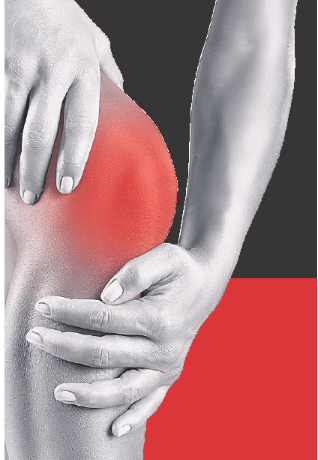There’s a persistent ache in your knee and you know that arthritis runs in the family.
The words “knee pain” on Google search throws up thousands of posts on Arthritis and Total Knee Replacement (TKR) Surgery. And yet, after hours of research, there are niggling questions and non-medical queries that arise. Here we seek to address those that a patient has once his/her surgeon has recommended a Knee Replacement Surgery (TKR Surgery).
#1:
I am apprehensive about this surgery and have heard stories of my friend’s aunt having a bad experience and increased pain post TKR. What do I do?
Whilst your fear is natural (since your information is first-hand), the reality is that a TKR performed in a good hospital under the hands of an able doctor has a very high success rate (as high as 98%). However, an equally successful recovery depends on how carefully the patient follows the doctor’s post-surgery instructions.
#2:
TKR is too heavy on my pocket and I am exploring other low cost options like pain killers, steroids, braces etc. Will these relieve my knee pain and cure the arthritis in my knee?
Pain killers, steroids, braces etc., definitely help in pain relief, but these only mitigate the symptoms (pain) and do not cure the cause (arthritis). Arthritis is a disease that is caused due to wear-and-tear of the joints and this damage is irreversible. While the low cost options that you are exploring can give you relief, they are temporary measures with the added downside of possibly affecting other healthy organs of the body like the kidney, liver etc.
#3:
I consulted a doctor and he mentioned that I am in early stages of knee arthritis. What are the treatment options?
Early stage arthritis can be successfully tackled with medication, physiotherapy and weight management techniques. Please remember that arthritis is a progressive disease and the natural progression from Stage 1 to Stage 2 and further cannot be stopped, but it can definitely be controlled by effective medication/exercises. Your doctor is the best person to advise you on the steps to take.
#4:
If I opt for a Knee Replacement Surgery, when can I start walking normally and be pain free?
Patients recovering from a Knee Replacement Surgery can start walking from the second day after the surgery. They are actually encouraged to start walking as soon as possible. However, patients who have had knee arthritis for a very long time could take anywhere between 2 weeks to 3 months to regain their normal gait.
#5:
Can I sit on the floor post-surgery?
Yes, you can sit on the floor post-surgery. There are specific high flexion implants available that are designed so that the patient can sit comfortably on the floor post surgery. However, the caveat here is that your knee must be healthy and you must have had a healthy lifestyle even before the surgery.
#6:
Is TKR a major surgery? What are the chances of failure?
TKR is considered a major surgery and, given the advances in medicine/technology, many people can safely opt for this surgery. The industry wide success rate of TKR, as mentioned earlier, is around 98%, provided the surgery is performed by a good orthopaedic surgeon in a hospital that has the necessary facilities and following good operating room protocols.
Since one of the biggest reasons for a failed Knee Replacement Surgery is infection, a patient needs to be aware of the operating room protocols and should select a hospital that adheres to the standards required to maintain an infection free atmosphere.
If you have been advised a knee replacement surgery by your local doctor and you are exploring options on good doctors, we recommend you use our patient platform and upload your most recent X-ray of the knee along with the doctor report and we could connect you with our panel of knee replacement specialists for an opinion.
As part of my-healthconnect initiatives, we have empanelled Orthopaedic Surgeons, who have the necessary expertise to perform TKR surgeries. Our initiatives have been helpful in connecting patients in sub-urban India as well as overseas patients to specialists in India for an opinion and, where required, the necessary follow-up treatment.





